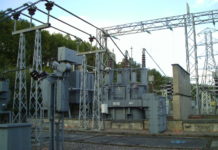
The government’s energy market reform (EMR) programme has created more headaches than remedies for Britain’s big businesses and most expect power prices to rise by around 10% in 2015.
More than three quarters (78%) of company directors surveyed by theenergyst.com for the 2014 Directors Report said EMR had created more problems than it had solved.
Download the free report here.
Roughly the same proportion (74.5%) of company bosses indicated that rising non-wholesale energy costs (green taxes, transmission and distribution) were a worrying development.
Almost two thirds (63%) expected power prices to rise by around 10% in 2015. Some 43% expected gas prices to rise by the same amount. Two thirds (65.89%) have allocated budget provisions for energy price rises of between 5% and 10% in 2015.
While Ofgem’s reforms to liquidity came into force in April this year, sixty per cent of respondents suggested that a lack of liquidity remained a problem for their businesses when purchasing energy in the UK.
As the EMR programme approaches its fifth year, flags around unintended consequences, such as incentivising old, inefficient plant (including coal) via the capacity mechanism, are being raised with increasing frequency.
However, ahead of the first capacity market auctions, most directors (68.63%) agreed a capacity mechanism was needed to help ensure security of supply.
The majority of directors (58%) also voiced dissatisfaction around the clarity of suppliers charging structures. The same proportion (58.82%) said price certainty was more important to them than flexible energy purchasing strategies.
The Directors Report also shows how business bosses rate their suppliers, as well as third party intermediaries/brokers, and how they rate their own purchasing teams. It also suggests considerable appetite for collaborative buying and a significant gap in benchmarking energy purchasing effectiveness.
The report’s key findings will be published in the forthcoming December/January print issue of Water, Energy & Environment.
The full report is now available to download for free.
Click here to see if you qualify for a free subscription to the print magazine, or to renew.



